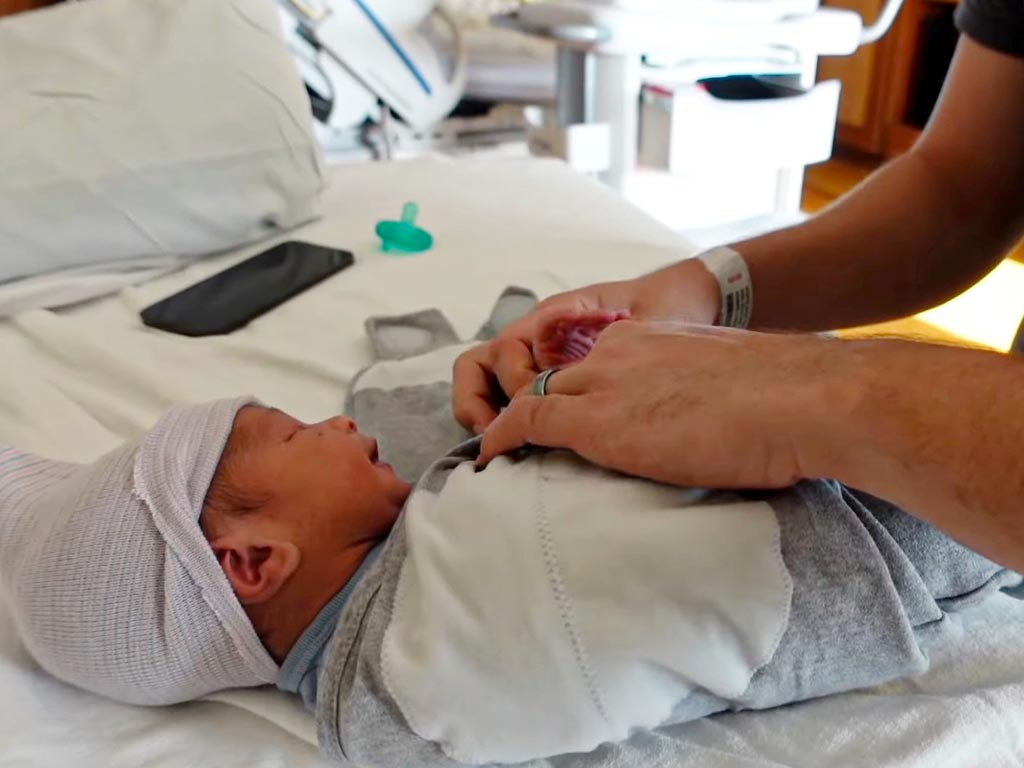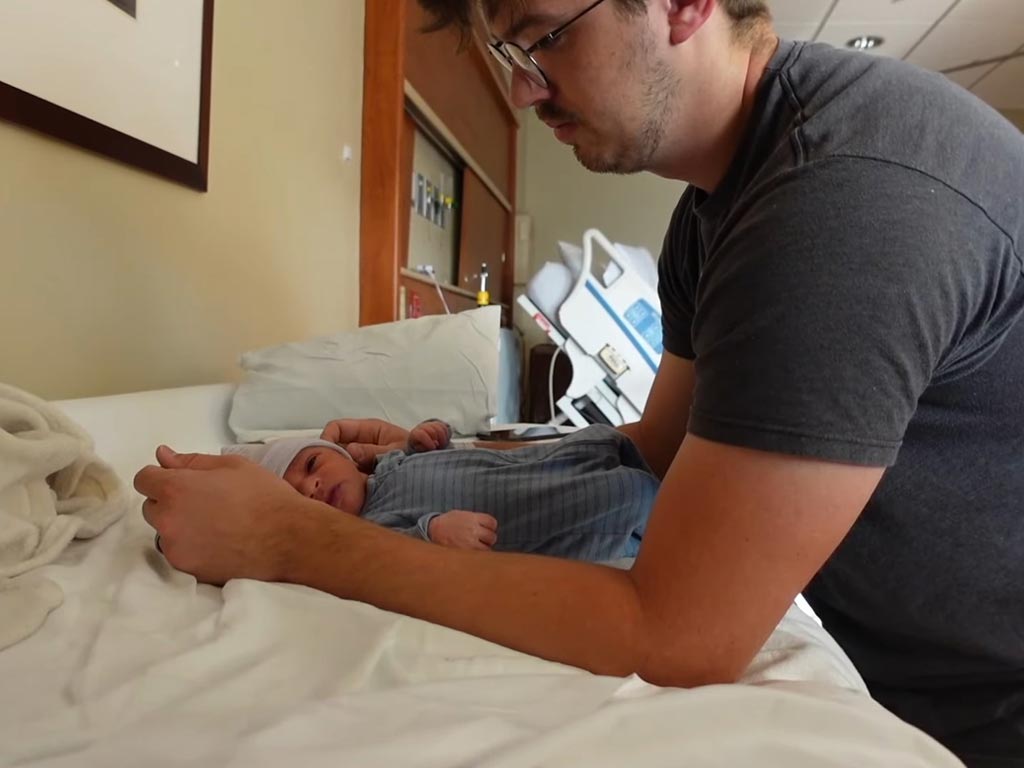The first few weeks with a new baby in Boston mark a transformative and tender period for both parents and the newborn.
Amidst the exhilaration of welcoming a new life, navigating the intricacies of healthcare, safety, and community support becomes paramount.
This crucial phase involves various considerations, from selecting a pediatrician and prioritizing postpartum care to adapting to urban living challenges specific to Boston’s dynamic environment.
In these initial weeks, parents grapple with sleep deprivation, breastfeeding nuances, and the emotional terrain of adjusting to parenthood.
Exploring the array of local resources available, from parenting classes to mental health services, becomes instrumental in fostering a secure and enriching environment for the family.
Boston’s diverse offerings and bustling urban landscape add a unique flavor to the early parenting journey.
How Crucial Are the First Few Weeks With a New Baby in Boston?
The first few weeks with a new baby are crucial regardless of location, including Boston. This period, often called the postpartum or newborn period, is a time of significant adjustment for both parents and the baby.
Here are some aspects that make the first few weeks particularly crucial:
Physical Recovery for the Mother
The mother’s body needs time to heal after giving birth, and the first few weeks are crucial for her physical recovery. Adequate rest, proper nutrition, and medical check-ups are essential during this time.
Bonding and Attachment

The early weeks are critical for parents to bond with their newborn. Skin-to-skin contact, holding, and responding to the baby’s needs help build a strong emotional connection between parents and the baby.
Establishing Breastfeeding
The early weeks are crucial for establishing a good breastfeeding routine if the mother is breastfeeding. Proper latch, feeding frequency, and support are important for the baby’s nutrition and the mother’s comfort.
Sleep and Routine
Establishing a sleep routine can be challenging in the first few weeks. Parents often experience sleep deprivation, and finding a balance between caring for the baby and getting enough rest is crucial for the well-being of both parents and the baby.
Monitoring Baby’s Health
Regular check-ups with a pediatrician are important during the first few weeks to monitor the baby’s health and development. Any concerns or issues can be addressed promptly.
Emotional Well-being
The postpartum period can be emotionally challenging for new parents.
Hormonal changes, lack of sleep, and the demands of caring for a newborn can contribute to mood swings and feelings of stress. Emotional support and communication are crucial during this time.
Learning and Adjusting
Being a new parent involves a learning curve. Learning to understand the baby’s cues, meeting their needs, and adjusting to the new routine are important aspects of the early weeks.
In Boston, as in any location, there may be additional factors to consider, such as the availability of support networks, healthcare services, and community resources.
Seeking support from friends, family, and healthcare professionals can be particularly helpful during this period. It’s essential for parents to prioritize self-care, communicate openly with each other, and seek assistance when needed.
Every family’s experience is unique, but the first few weeks lay the foundation for the parents’ and newborn’s ongoing development and well-being.
Challenges You Might Face in the First Week With a Newborn in Boston
Facing the first week with a newborn in Boston, as in any other location, can present various challenges. Here are some common challenges new parents might encounter during this time:
Sleep Deprivation

Newborns require frequent feeding, and their sleep patterns can be erratic. Parents often experience sleep deprivation, which can be challenging physically and emotionally.
Postpartum Recovery
The mother’s body undergoes significant changes during childbirth, and the first week involves postpartum recovery. Physical discomfort, fatigue, and hormonal fluctuations are common.
Breastfeeding Challenges
Establishing breastfeeding can be challenging. Issues such as latch problems, nipple pain, and concerns about milk supply may arise. Seeking guidance from lactation consultants or healthcare providers is crucial.
Adjustment to Parenting Roles
The transition to parenthood involves a significant adjustment in roles and responsibilities. Balancing caregiving duties, household tasks, and self-care can be overwhelming.
Emotional Well-being
Hormonal changes, sleep deprivation, and the demands of caring for a newborn can contribute to mood swings and emotional challenges. Postpartum blues or more serious conditions like postpartum depression may arise.
Navigating Healthcare
Scheduling and attending postpartum check-ups can be logistically challenging for both the mother and baby. Familiarizing yourself with available healthcare resources and services in Boston is important.
Support System
Establishing a support system is crucial. If you don’t have family nearby, connecting with local parenting groups, attending classes, or seeking support from friends can help alleviate feelings of isolation.
Weather Considerations
Depending on the time of year, Boston weather can pose challenges, especially during winter. When venturing outside with a newborn, preparing for cold weather, snow, or other weather conditions is important.
Feeding and Diapering Routine
Learning the baby’s feeding, diapering cues, and establishing a routine can be a learning process. Monitoring the baby’s weight gain, diaper output, and overall well-being is essential.
Communication with Partner
Effective communication with your partner is crucial during this time. Discussing expectations, sharing responsibilities, and supporting each other emotionally can strengthen your relationship as new parents.
Despite these challenges, many parents find the first week with a newborn to be a time of joy and bonding.
Seeking help when needed, prioritizing self-care, and staying connected with healthcare providers and support networks can contribute to a smoother transition into parenthood.
Remember that each family’s experience is unique, and it’s okay to ask for assistance and take things one step at a time.
Things to Consider For the Safety of Your Newborn in Boston
Ensuring the safety of your newborn in Boston, or any urban environment, involves thoughtful consideration of various factors. Here are eight important points to consider:
Car Seat Safety

Invest in a high-quality, properly installed car seat for your newborn.
Massachusetts law requires the use of a rear-facing car seat for infants up to at least two years of age or until they reach the maximum weight and height limits specified by the seat’s manufacturer.
Ensure that the car seat is installed correctly and have it inspected by a certified technician.
Safe Sleep Practices
Follow the guidelines for safe sleep provided by the American Academy of Pediatrics (AAP).
Place your baby on their back to sleep on a firm mattress in a crib with no soft bedding or toys. Avoid co-sleeping, and use a sleep sack or wearable blanket for warmth instead of loose blankets.
Home Safety Measures

Baby-proof your home by securing furniture, covering electrical outlets, and installing safety gates.
Keep hazardous substances, such as cleaning supplies and medications, out of reach. Ensure that window blinds do not have accessible cords that pose a strangulation risk.
Regular Healthcare Check-ups
Schedule regular well-baby check-ups with a pediatrician. These appointments are essential for monitoring your baby’s growth, development, and immunization schedule.
Address any concerns about your baby’s health promptly.
Weather Considerations
Boston experiences various weather conditions throughout the year. During colder months, dress your baby in layers and use a warm, snug-fitting hat.
In warmer weather, protect your baby from the sun with lightweight clothing and shade, and ensure they stay hydrated.
Awareness of Surroundings
Be mindful of your surroundings, especially in crowded urban areas. Use a stroller with a five-point harness, and be cautious when navigating through traffic or crowded spaces.
Look for potential hazards, such as uneven sidewalks or street crossings.
Security in Public Places
Be vigilant about your baby’s security when visiting public places or using public transportation. Use designated baby-changing facilities and nursing rooms when available.
Keep your baby close to you in a carrier or stroller, and be aware of your surroundings.
Emergency Preparedness
Familiarize yourself with emergency procedures and contact information for healthcare providers, including the nearest pediatric emergency room.
Have a well-stocked first aid kit at home, and know the location of the nearest hospital or urgent care center.
Ensuring your newborn’s safety involves careful planning, ongoing awareness, and adherence to recommended guidelines.
Stay informed about child safety practices, seek guidance from healthcare professionals, and make adjustments as needed based on your baby’s developmental stages and the specific challenges of the urban environment in Boston.
Healthcare in the First Few Weeks of a New Baby in Boston
In the first few weeks of a new baby’s life in Boston, accessing healthcare is crucial to ensure the well-being of both the newborn and the mother. Here are key aspects to consider:
Pediatrician Selection
Before your baby is born, it’s essential to choose a pediatrician. Ask for recommendations, consider the proximity of the pediatrician’s office to your home, and ensure that the chosen healthcare provider is accepting new patients.
Newborn Check-ups

Schedule your baby’s first well-baby check-up with the pediatrician shortly after birth. These initial appointments typically occur within a few days to a week after hospital discharge.
The healthcare provider will assess the baby’s growth, development, and overall health during these visits.
Vaccinations
Discuss the vaccination schedule with your pediatrician and ensure that your baby receives vaccinations according to the recommended timeline.
Vaccines protect against various diseases and are a crucial aspect of preventive healthcare.
Postpartum Care for the Mother
Mothers also require postpartum care. Schedule a follow-up appointment with your obstetrician or midwife for postpartum check-ups.
These appointments address physical recovery, emotional well-being, and any concerns related to the birthing process.
Lactation Support
If you’re breastfeeding, seek lactation support if needed. Many hospitals in Boston have lactation consultants who can provide guidance on breastfeeding techniques, latch issues, and other breastfeeding challenges.
Newborn Screening Tests
Ensure that your baby undergoes the necessary newborn screening tests. These tests are typically done in the hospital shortly after birth and help identify potential health issues that may require early intervention.
Emergency Care
Familiarize yourself with the location of the nearest pediatric emergency room or urgent care center. Knowing where to go in case of emergencies is crucial for prompt and effective medical care.
Postpartum Mental Health
Keep an eye on your mental health and seek support if you experience postpartum depression or anxiety. Boston has resources such as support groups, therapists, and mental health services that can provide assistance.
Insurance Coverage
Verify that your baby is added to your health insurance plan. Understanding your insurance coverage, including well-baby visits, vaccinations, and other healthcare services, is important for managing healthcare costs.
Community Resources
Explore community resources and support services for new parents in Boston. This may include parenting classes, breastfeeding support groups, and programs that assist with various childcare aspects.
Regular communication with healthcare providers, staying informed about your baby’s development, and addressing any concerns promptly contribute to a positive healthcare experience in the first few weeks of your baby’s life.
As a metropolitan area, Boston offers a range of healthcare facilities and resources to support new parents in providing the best possible care for their newborns.
FAQs
What are some local resources for new parents in Boston during the first few weeks with a newborn?
Boston offers various resources, including parenting classes at local hospitals, breastfeeding support groups, and community centers.
Contact organizations like the Boston Parents Paper and local health departments for information on classes, groups, and services tailored for new parents.
How can I find a pediatrician for my newborn in Boston?
Start by asking for recommendations from friends, family, or your obstetrician. Research local pediatricians, considering their proximity, availability, and compatibility with your parenting philosophy.
Schedule interviews to discuss your expectations and ensure a good fit for your baby’s healthcare needs.
Are there specific weather considerations for newborns in Boston?
Yes, especially during colder months. Dress your baby in layers, including a hat, and use a warm stroller blanket.
Be cautious in adverse weather conditions and ensure your baby stays warm while being mindful of any extreme hot or cold temperatures.
What are some common postpartum mental health resources in Boston?
Boston has several resources for postpartum mental health, including support groups, therapists, and hotlines.
Organizations like Postpartum Support International and local hospitals often provide information and referrals. Reach out to your healthcare provider or community health center for additional resources.
Wrapping Up
In the first few weeks with a new baby in Boston, prioritizing healthcare, safety, and support is paramount.
From selecting a pediatrician and ensuring postpartum care to navigating urban challenges, thoughtful planning and accessing local resources contribute to a positive and secure start for both parents and newborns.
Building a support network, staying informed about healthcare options, and being mindful of weather considerations enhance the overall experience of welcoming a new life in this vibrant city.
Boston’s rich array of resources, from parenting classes to mental health services, complements each family’s unique journey, fostering a foundation for the health, safety, and happiness of the newest addition to the household.
Martin McEntee